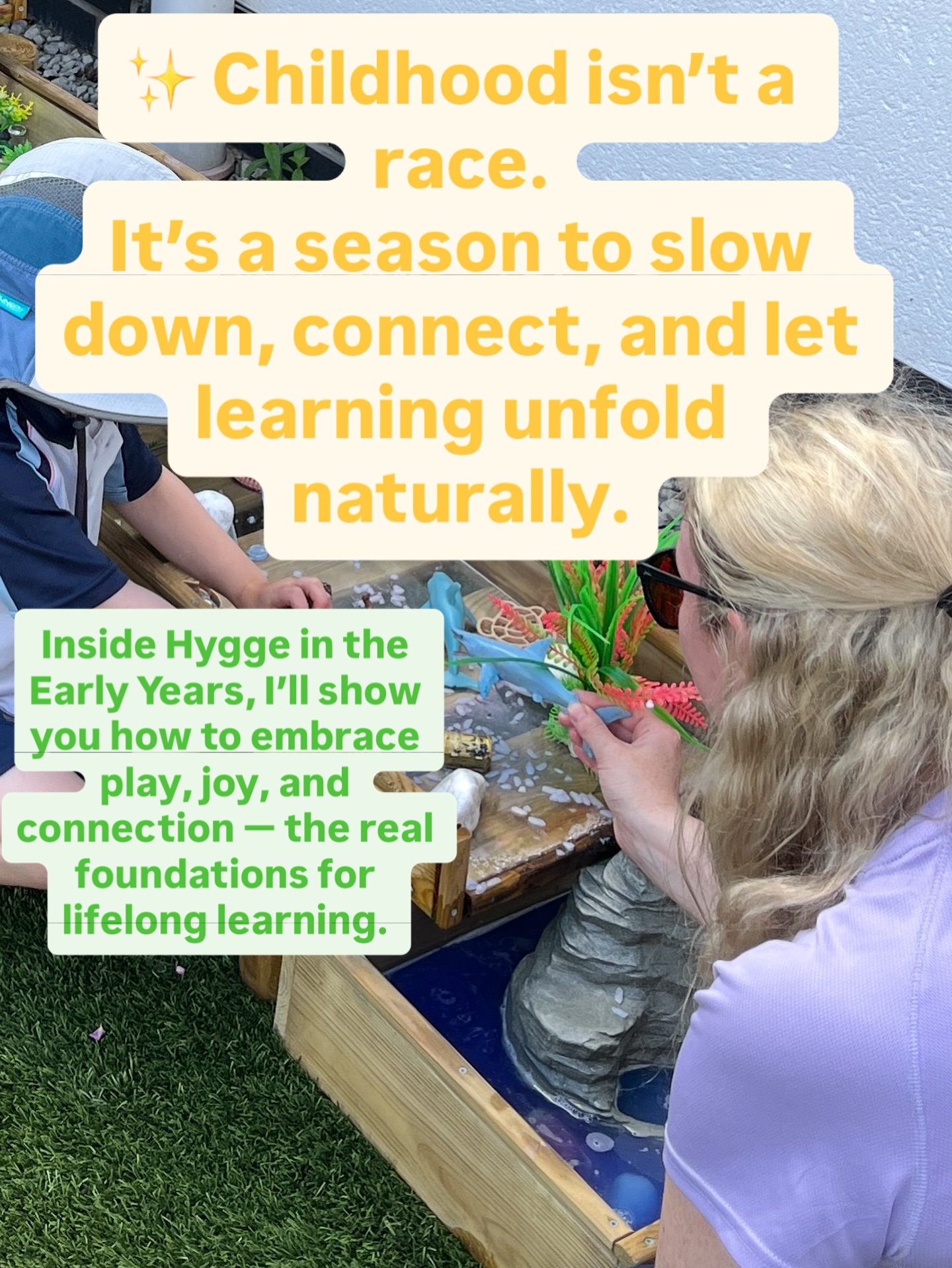You're Only 2 Years Old and You're Already Doing Phonics

Childhood Isn’t a Race: Why 2-Year-Olds Don’t Need Phonics
“You’re only 2 years old… and you’re already doing phonics.”
It’s something I hear often — and every time, it makes me pause.
Somewhere along the way, childhood has become a race.
🚩 A race to read.
🚩 A race to count.
🚩 A race to perform.
But here’s the truth: two-year-olds don’t need phonics.
What they do need is something much more profound:
🌿 Play.
🌿 Connection.
🌿 Time to explore the world with their hands, hearts, and senses.
Why Starting Too Soon Can Harm
Research is clear: pushing formal academics too early doesn’t give children an advantage. In fact, it can do the opposite.
Children who are introduced to phonics or other formal skills before they’re developmentally ready may experience:
-
Stress and frustration when the task feels beyond their ability.
-
A loss of joy in learning because it becomes performance-driven.
-
Gaps later on in creativity, problem-solving, and resilience because play has been crowded out.
Learning to read, write, and calculate will come. But what truly matters in the early years is laying the right foundations — and these are not built through flashcards or worksheets.
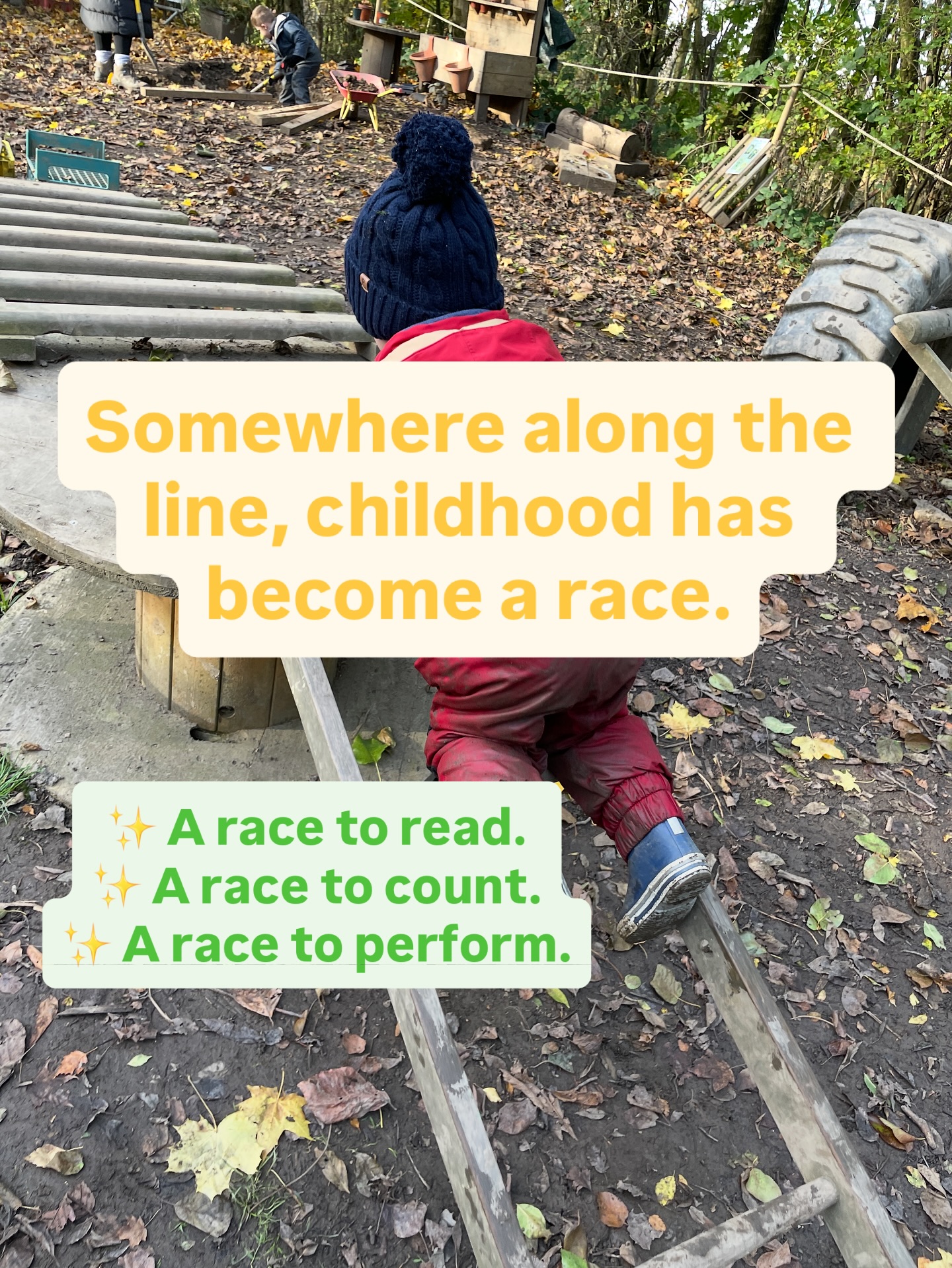
What Builds Strong Foundations for Learning?
The roots of literacy and numeracy grow through rich, playful experiences:
💛 Listening to stories, snuggled up with an adult
Children learn that words carry meaning, and they build emotional connection through rhythm, tone, and imagination.
💛 Singing rhymes and clapping rhythms
These playful patterns build phonological awareness — the real foundation of phonics — while strengthening memory and social joy.
💛 Splashing in puddles and building with blocks
Physical play strengthens coordination, problem-solving, and perseverance, which are essential for all future learning.
💛 Exploring nature and following curiosity
Discovering worms in the soil, counting acorns, or watching clouds drift by nurtures observation skills, vocabulary, and a love for discovery.
These moments may look “simple,” but in the brain they are powerful — strengthening neural pathways that support communication, focus, and creativity.
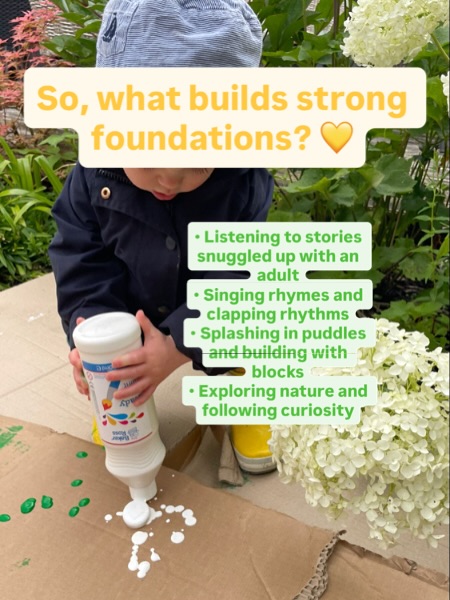
A Scandinavian and Hygge Perspective
In Scandinavia, formal academics don’t begin until children are around 6 or 7. Before that, early childhood is protected as a season for play, exploration, and connection.
The Hygge approach honours this rhythm. It tells us: childhood is not a race. Childhood is a season to be cherished, not hurried. When we create calm, playful, and connected environments, we allow learning to unfold naturally.
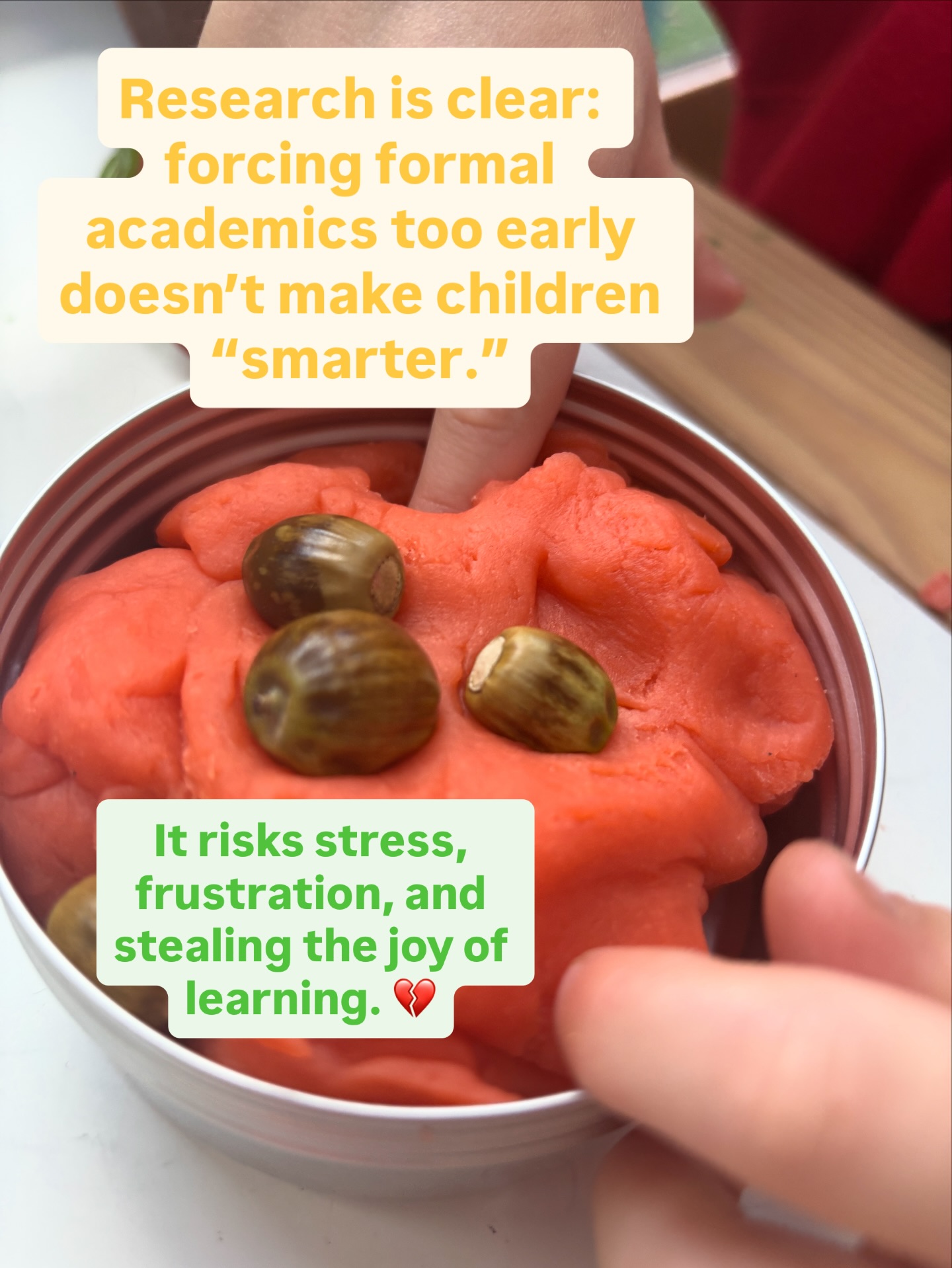
In Essence
✨ Two-year-olds don’t need phonics.
They need:
-
The warmth of stories.
-
The joy of rhythm and song.
-
The freedom of play outdoors.
-
The comfort of connection with their caregivers.
These are the true foundations for lifelong learning.
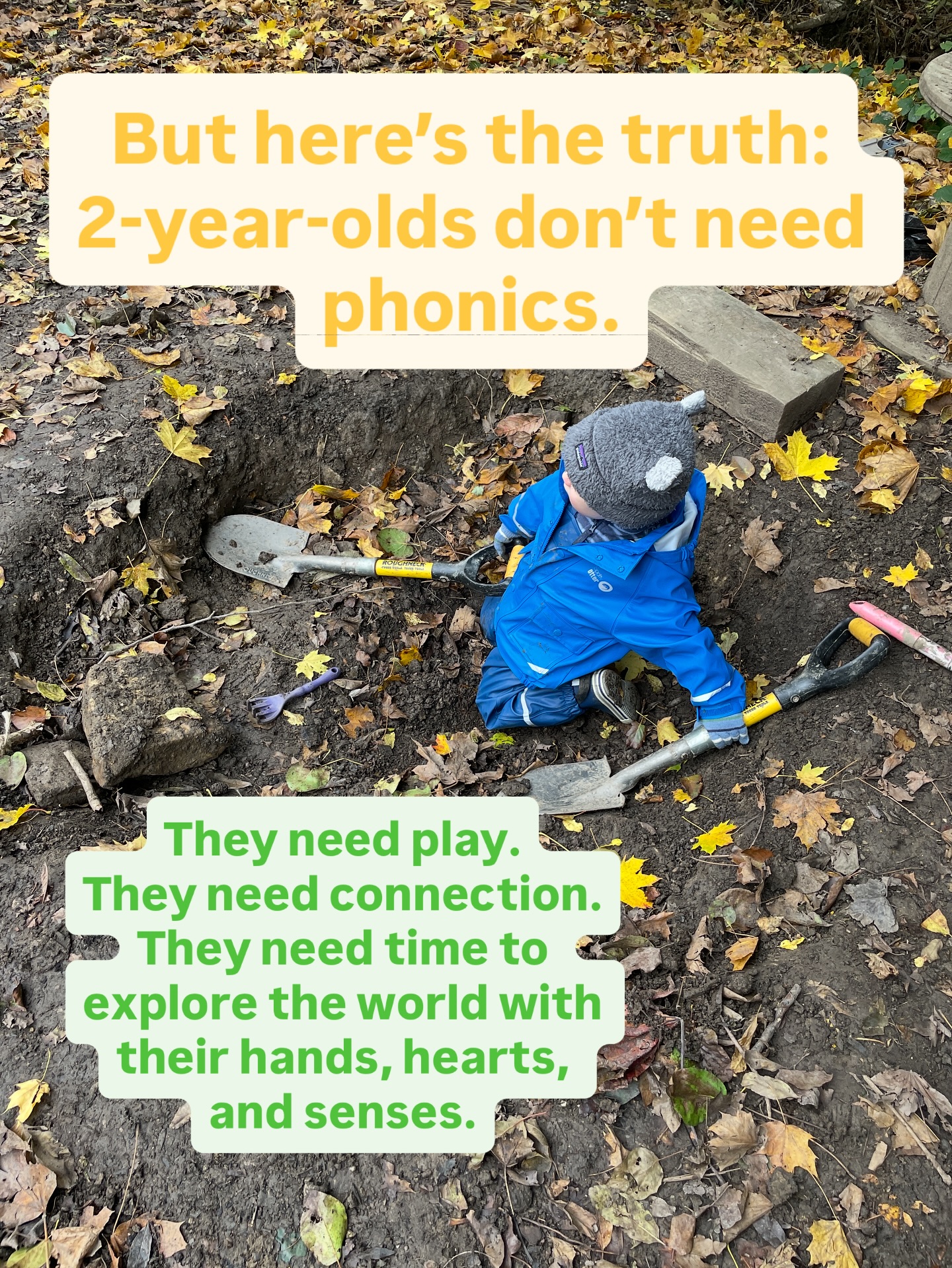 💫 Inside Hygge in the Early Years, I’ll show you how to create an environment where children thrive through play, joy, and connection — not pressure and hurry.
💫 Inside Hygge in the Early Years, I’ll show you how to create an environment where children thrive through play, joy, and connection — not pressure and hurry.
👉 Begin your journey today: www.hyggeintheearlyyears.co.uk
Have you tried my FREE Introduction to Hygge Training yet?

